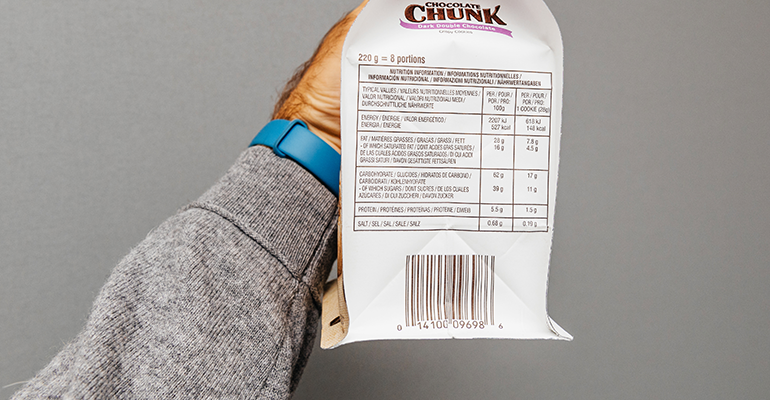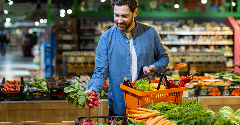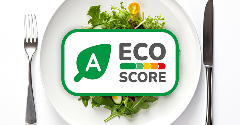News
Food warning labels are inconsistent in discouraging unhealthy foods
25 Oct 2022
A front-of-pack nutrition warning label is more of a deterrent on breakfast cereals than indulgent products, such as chocolate and cookies, according to findings from a recent Chilean study.
In the study, published in the journal Marketing Science, the Chilean-based team found consumers reduced breakfast cereals purchases with these labels – a finding not repeated with chocolates and cookies.

Further observations revealed lower and middle-income consumers and families with children were more likely to pay attention to food warning labels.
“In the breakfast cereal category, the warning labels reduced the purchased volume by 6.2 percentage points,” said the researchers, who are based at the University of Chile.
“In the chocolates and cookies categories, we found inconclusive evidence, meaning we could not see a noticeable impact on sales. Food labelling information may be necessary but not sufficient to boost consumers' healthier choices.”
Commenting on the findings from the breakfast cereals category, the research team said, “Our estimates from a household analysis indicate that medium- to low-income consumers, along with families with children, are indeed sensitive to warning labels.
“These findings are based on actual shopping behaviour that may differ from what people say they do. This effect is probably best explained by a noticeable shift in purchasing from unhealthy to healthy products, and to a lesser degree, to a reduction of purchase in that category.”
Black labels warn of exceeded thresholds
Chile brought in comprehensive food labelling regulations for products exceeding nutrient thresholds in 2016. These products must display mandatory warning labels.
Under the regulations, packaged food products that exceed sugar, sodium, saturated fats, and calorie thresholds must display standardised black labels warning.
The initial phase began on June 27, 2016, with more stringent thresholds gradually introduced in June 2018 and June 2019.
With a focus on the initial phase, the team combined individual transaction data from a large retailer with on-the-shelf information printed on the warning labels for breakfast cereals, chocolates, and cookies.
“During the transition towards compliance, store shelves included existing inventories of packaging (without warnings) from before the regulation was enacted, and new products whose packaging was compliant with the new regulation,” said the researchers.
“This enabled us to collect daily data on the label status of specific products (at the Universal Product Code [UPC] level) and watch for deviations in purchasing patterns across time and stores.”
 © AdobeStock/ifeelstock
© AdobeStock/ifeelstock
Chocolate and cookie categories tagged as ‘unhealthy’
The team, which included colleagues from Pontifical Catholic University of Chile, pointed to differences across these categories, where variations in regulation standards allowed for nonlabelled breakfast cereal products.
This was in contrast to almost all the Universal Product Codes (UPCs) in the chocolate and cookie categories, which ended up tagged as unhealthful products, and the inclination for taste may affect more products that are considered indulgent.
The researchers also believe the results gathered in the medium socioeconomic groups and families with children are susceptible to modification via simplifying the nutritional information.
“These findings are highly relevant for policymakers who typically target both groups, given their higher risk of developing obesity especially given the alarming obesity rates among children,” the team wrote.
Other discussion points include the influence of price on the effectiveness of the Chilean warning labels among medium socioeconomic households.
“In our setting, prices did not play a significant role as unlabelled and labelled cereals displayed similar price levels. Hence, substituting away from labelled breakfast cereals was not seriously affecting household expenditures.”
Front-of-pack label adoption gaining traction around the world
Chile is among the early adopters of a mandatory front-of-pack nutrition labelling law that is increasingly being considered or adopted by other countries around the world.
For example, Canada has begun discussing the adoption of a mandatory front-of-pack nutrition labelling system which, according to the initial specifications set by the Canadian Ministry of Health, would include several elements contained in the Chilean law.
These instructions included adhering to the ‘high in’ approach, focus on sugars, sodium, and saturated fats as nutrients of public health concern and the use of black and white colours only.
Among the countries that have already implemented mandatory front-of-pack nutrition labelling systems are Ecuador, Peru, Uruguay, Israel, and Mexico.
Under present EU rules, itis not mandatory to include nutrition information on food packages, but food makers can supply it voluntarily under specific conditions.
The European Commission is proposing standardised front-of-pack nutrition labelling at the EU-level as outlined in its Farm to Fork action plan.
The study, “Identifying Food labelling Effects on Consumer Behaviour,” is published in the current edition of the Institute for Operations Research and the Management Sciences (INFORMS) journal Marketing Science.
Related news

UK Government overhauls childhood obesity strategy
21 Nov 2025
The UK Government has announced a new package of measures designed to reverse the nation’s childhood obesity epidemic following the release of statistics revealing the scale of the crisis.
Read more
How younger consumers are redefining ingredient choices and rejecting brand loyalty
18 Nov 2025
Gen Z and millennial consumers’ preferences for transparency, functionality, and purpose are “redefining the very nature of consumption itself”, says SPINS.
Read more
New UPF standard hoped to offer consumers ‘coherence and clarity’
10 Nov 2025
Ingredients companies are being urged to enter “a new era of partnership and innovation” following the launch of the industry’s first non-UPF verification scheme.
Read more
Ingredient quantities mislabelled on popular protein bars, independent tests show
5 Nov 2025
Some popular protein bars contain more fat, carbs, and/or sugars than claimed on their labels, independent nutrition testing reveals.
Read more
Does promoting protein content push up plant-based sales?
27 Oct 2025
Promoting the protein content of meat-free products is a more effective sales strategy than adding carbon labels, a study of UK bakery chain Greggs suggests.
Read more
Supplement shoppers seek storytelling and science-backed suppliers
17 Oct 2025
Supplement consumers want specific health benefits that focus on prevention and personalisation, according to data from HealthFocus International.
Read more
Food fraud risks rise as brands fight economic and environmental headwinds
10 Oct 2025
Climate change, geopolitics, regulations, and demand for sustainable products are pushing up food fraud and adulteration risks, warns a world-leading food fraud expert.
Read more
The growing appeal of nutrient-dense food claims
2 Oct 2025
Nutrient-dense claims are rising as consumers reject the “empty calories” of UPFs in favour of products that provide meaningful nutrition with every calorie, Mintel data shows.
Read more
What does MAHA mean for the US nutraceutical industry?
30 Sep 2025
Industry associations have expressed mixed reactions to new policy directions on health and nutrition under the Make America Health Again (MAHA) banner.
Read more
Eco-Score labels improve consumer identification of sustainable foods
22 Sep 2025
The presence of a front-of-pack Eco-Score label improves consumers' accuracy in identifying sustainable food products from 52% to 72%, a study suggests.
Read more